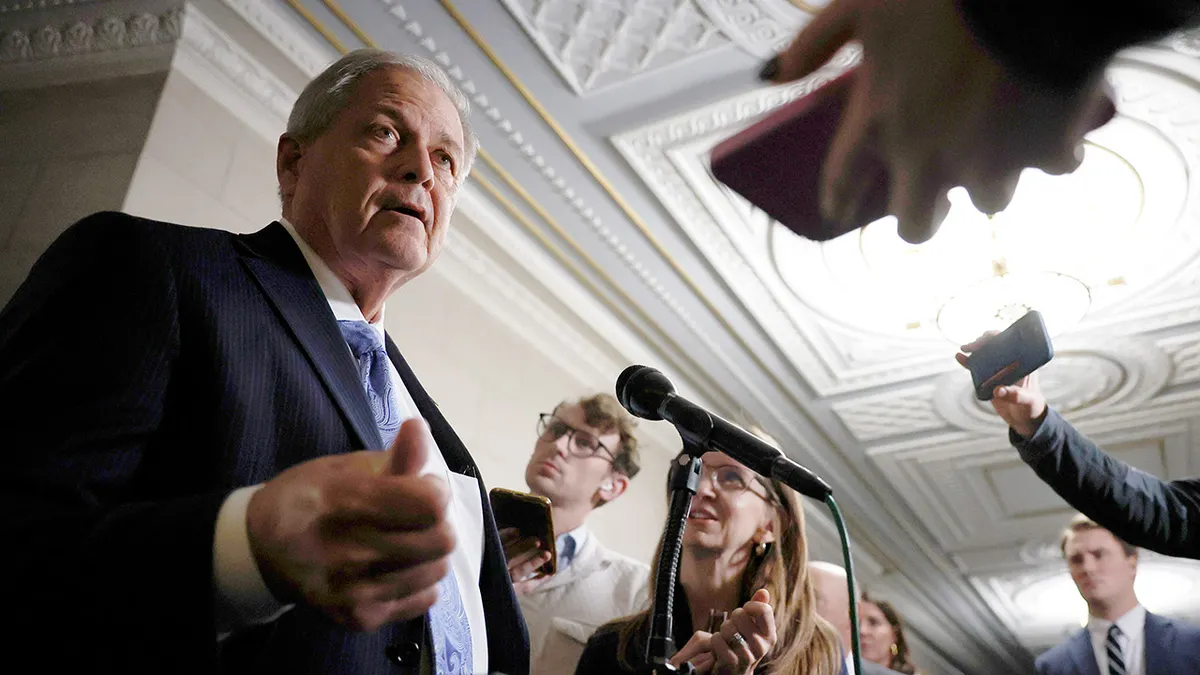Medicaid is becoming a major point of contention as House Republicans work on a substantial bill to extend former President Trump's tax cuts. Fiscal conservatives are pushing for significant spending cuts to offset the cost of these extensions, leading to disagreements within the party about the potential impact on essential safety net programs.
Several Republican lawmakers have voiced concerns about the proposed cuts to Medicaid, which some estimate could reach $880 billion. They argue that these cuts contradict Trump's previous directives to protect such programs. The proposed cuts are part of a broader effort to implement various Trump-era policies through the budget reconciliation process, which allows the majority party to pass legislation without bipartisan support.

Speaker Mike Johnson faces the challenge of navigating a slim Republican majority to advance this legislation. The current proposal aims to cut government spending by at least $1.5 trillion while allocating $4.5 trillion for Trump's tax cuts. An amendment added in response to conservative resistance would reduce the tax cut allocation by $500 billion if the $2 trillion spending cut target isn't met.
Even with the amendment, some Republicans remain worried about the impact of the proposed $880 billion in cuts, particularly those assigned to the Energy and Commerce Committee. While conservatives argue that work requirements for Medicaid recipients could generate substantial savings, others doubt that these alone can achieve the desired level of cuts.

Rep. Nicole Malliotakis, along with other Republicans on the Ways and Means Committee, has also expressed concern about the amendment potentially impacting tax policy. She and other lawmakers believe the magnitude of the proposed cuts could negatively affect Medicaid beneficiaries. One anonymous Republican representative suggested that the actual cuts being considered could be closer to $2 trillion, a figure they believe is unlikely to pass.
The budget reconciliation process requires only a simple majority in the Senate, but with the current narrow Republican majority in the House, even a single dissenting vote could derail the entire bill. Conservative representatives like Ralph Norman insist that Medicaid reforms, including work requirements, are necessary to achieve the targeted spending cuts. They estimate that work requirements alone could generate $800 billion in savings.

Democrats are criticizing the Republican proposal, accusing them of prioritizing tax cuts for the wealthy over vital healthcare programs. The House Majority PAC, aligned with Democratic leadership, released a memo highlighting the potential negative consequences of Medicaid cuts, particularly for children and vulnerable populations. However, Ways and Means Republicans counter that allowing the Trump tax cuts to expire would result in significant tax increases for average American households.
Comments(0)
Top Comments